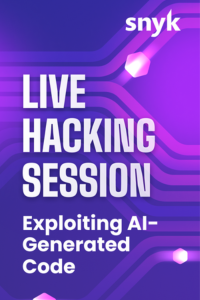Bruce Schneier - A Taxonomy of Adversarial Machine Learning Attacks and Mitigations: NISTjust releaseda comprehensive taxonomy of adversarial machine learning attacks and countermeasures.
Bruce Schneier - AI Data Poisoning:"Cloudflare has a new feature—available to free users as well—that uses AI to generate random pages to feed to AI web crawlers: Instead of simply blocking bots, Cloudflare’s new system lures them into a “maze” of realistic-looking but irrelevant pages, wasting the crawler’s computing resources. The approach is a notable shift from the standard block-and-defend strategy used by most website protection services. Cloudflare says blocking bots sometimes backfires because it alerts the crawler’s operators that they’ve been detected."
Bruce Schneier - Report on Paragon Spyware: "Citizen Lab has anew report on Paragon’s spyware."
Bruce Schneier - More Countries are Demanding Backdoors to Encrypted Apps: "Last month, Iwrote aboutthe UK forcing Apple to break its Advanced Data Protection encryption in iCloud. More recently, bothSwedenandFranceare contemplating mandating backdoors. Both initiatives are attempting toscare peopleinto supporting backdoors, which are—of course—areterrible idea."
CISA - Two Known Exploited Vulnerabilities to Catalog: CISA has added two new vulnerabilities to itsKnown Exploited Vulnerabilities Catalog, based on evidence of active exploitation. CVE-2019-9874 Sitecore CMS and Experience Platform (XP) Deserialization Vulnerability and CVE-2019-9875 Sitecore CMS and Experience Platform (XP) Deserialization Vulnerability. These types of vulnerabilities are frequent attack vectors for malicious cyber actors and pose significant risks to the federal enterprise.
CYFIRMA - Turning Aid into Attack: Exploitation of Pakistan's Youth Laptop Scheme to Target India: "In this report, CYFIRMA examines the tactics employed by a Pakistan-based APT group, assessed with medium confidence as APT36, who created a fake IndiaPost website to target and infect both Windows and Android users. We analysed the dropped Android executable and also revealed metadata indicating that the PDF was created in same time zone that Pakistan is in. Additionally, the laptop used to generate the file is part of Pakistan’s Prime Minister Youth Laptop Scheme. Further investigation into the IP resolution uncovered a domain associated with tactics commonly used by Pakistani APT groups."
Unlock access to the largest independent learning library in Tech for FREE!
Get unlimited access to 7500+ expert-authored eBooks and video courses covering every tech area you can think of.
Renews at $19.99/month. Cancel anytime
Krebs On Security - When Getting Phished Puts You in Mortal Danger: "Many successful phishing attacks result in a financial loss or malware infection. But falling for some phishing scams, like those currently targeting Russians searching online for organizations that are fighting the Kremlin war machine, can cost you your freedom or your life."
McAfee - New Android Malware Campaigns Evading Detection Using Cross-Platform Framework .NET MAUI: "Cybercriminals are constantly evolving their techniques to bypass security measures. Recently, the McAfee Mobile Research Team discovered malware campaigns abusing .NET MAUI, a cross-platform development framework, to evade detection. These threats disguise themselves as legitimate apps, targeting users to steal sensitive information. This blog highlights how these malware operate, their evasion techniques, and key recommendations for staying protected."
Sonatype - Multiple crypto packages hijacked, turned into info-stealers:Sonatype has identified multiple npm cryptocurrency packages, latest versions of which have been hijacked and altered to steal sensitive information such as environment variables from the target victims. Some of these packages have lived on npmjs.com for over 9 years, and provide legitimate functionality to blockchain developers. However, ourautomated malware detectionsystems detected that the latest versions of each of these packages were laden with obfuscated scripts, raising alarms.
WeLiveSecurity - You will always remember this as the day you finally caught FamousSparrow: "In July 2024, ESET Research noticed suspicious activity on the system of a trade group in the United States that operates in the financial sector. While helping the affected entity remediate the compromise, we made an unexpected discovery in the victim’s network: malicious tools belonging to FamousSparrow, a China-aligned APT group. There had been no publicly documented FamousSparrow activity since 2022, so the group was thought to be inactive. Not only was FamousSparrow still active during this period, it must have also been hard at work developing its toolset, since the compromised network revealed not one, but two previously undocumented versions of SparrowDoor, FamousSparrow’s flagship backdoor."
 United States
United States
 Great Britain
Great Britain
 India
India
 Germany
Germany
 France
France
 Canada
Canada
 Russia
Russia
 Spain
Spain
 Brazil
Brazil
 Australia
Australia
 Singapore
Singapore
 Canary Islands
Canary Islands
 Hungary
Hungary
 Ukraine
Ukraine
 Luxembourg
Luxembourg
 Estonia
Estonia
 Lithuania
Lithuania
 South Korea
South Korea
 Turkey
Turkey
 Switzerland
Switzerland
 Colombia
Colombia
 Taiwan
Taiwan
 Chile
Chile
 Norway
Norway
 Ecuador
Ecuador
 Indonesia
Indonesia
 New Zealand
New Zealand
 Cyprus
Cyprus
 Denmark
Denmark
 Finland
Finland
 Poland
Poland
 Malta
Malta
 Czechia
Czechia
 Austria
Austria
 Sweden
Sweden
 Italy
Italy
 Egypt
Egypt
 Belgium
Belgium
 Portugal
Portugal
 Slovenia
Slovenia
 Ireland
Ireland
 Romania
Romania
 Greece
Greece
 Argentina
Argentina
 Netherlands
Netherlands
 Bulgaria
Bulgaria
 Latvia
Latvia
 South Africa
South Africa
 Malaysia
Malaysia
 Japan
Japan
 Slovakia
Slovakia
 Philippines
Philippines
 Mexico
Mexico
 Thailand
Thailand

















